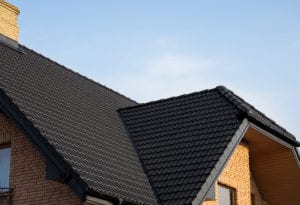
Roof Repair Warranties Explained: How to Protect Your Investment
Your home’s roof is one of the most critical components of its structure, protecting everything beneath it from weather, debris, and other environmental factors. When your roof requires repairs, ensuring those repairs are done correctly is vital to maintaining the integrity of your home. However, it’s not just about getting the job done right in the moment — it’s also about ensuring that your investment is protected long after the repairs are complete. This is where roof repair warranties come into play.
Understanding Roof Repair Warranties
A roof repair warranty offers peace of mind and financial protection, guaranteeing that if something goes wrong with the repair within a certain period, it will be fixed at no additional cost. But not all warranties are created equal, and understanding the details can help you make informed decisions and avoid costly mistakes. In this blog, we will break down the different types of roof repair warranties, how they work, and why hiring a quality contractor is essential to protecting your investment.
Why Roof Repair Warranties Matter
Roof repairs can be expensive, and while many homeowners focus solely on the upfront costs of the repair, it’s important to think long-term. What happens if the repair doesn’t hold up, or if additional damage occurs as a result of faulty workmanship or materials? Without a warranty, you could end up paying for the same repairs multiple times, significantly increasing your costs over time.
A roof repair warranty serves as a safeguard against these issues, ensuring that the roofer or manufacturer stands behind their work and products. It provides you with the confidence that if something goes wrong within the warranty period, you won’t be left footing the bill for additional repairs. Warranties are a way to ensure quality, reliability, and long-term protection for your home.

Types of Roof Repair Warranties
Roof repair warranties come in various forms, and understanding the differences is key to knowing what you’re getting when you hire a roofing contractor. Generally, there are two main types of warranties you need to be aware of: manufacturer warranties and contractor warranties.
Manufacturer Warranties
Manufacturer warranties cover defects in the roofing materials themselves. These warranties are provided by the company that produces the roofing products (shingles, tiles, etc.), not by the roofing contractor. While these warranties are often associated with new roof installations, they can also apply to materials used in repairs.
Types of Manufacturer Warranties:
- Standard Manufacturer’s Warranty: This covers any defects in the roofing materials for a certain number of years. If the materials fail prematurely due to a manufacturing issue, the manufacturer will replace the defective materials. However, it’s important to note that this type of warranty usually covers materials only, not labor.
- Prorated Warranties: Some manufacturer warranties are prorated, meaning the coverage decreases over time. For example, if your roof fails after 15 years on a 30-year prorated warranty, you may only receive a fraction of the replacement cost, and labor may not be included.
- Full Coverage Warranty: A full coverage warranty is rare and often more expensive. It typically covers both the materials and labor costs associated with repairing or replacing defective products, but these warranties are usually time-limited.
Contractor Warranties
Contractor warranties, also known as workmanship warranties, are provided by the roofing contractor who performs the repair work. These warranties cover the quality of the contractor’s workmanship and ensure that the installation or repair is completed to industry standards.
Types of Contractor Warranties:
- Workmanship Warranty: This warranty covers any issues that arise due to improper installation or poor craftsmanship. For example, if a leak develops because the roofer failed to install the flashing correctly, the contractor should fix the issue at no additional cost within the warranty period. Workmanship warranties typically range from one to five years, depending on the contractor.
- Leak-Free Warranty: This type of warranty guarantees that the roof will not leak for a specified period, provided that no external factors (such as tree damage or storms) contribute to the failure.
- Extended Labor Warranty: Some contractors offer extended warranties that cover labor costs for a longer period, especially if the manufacturer’s warranty doesn’t cover labor beyond a certain point.

Key Differences Between Manufacturer and Contractor Warranties
While both manufacturer and contractor warranties offer protection, they cover different aspects of the roof repair process. A manufacturer warranty is limited to material defects, while a contractor warranty focuses on the quality of the installation or repair. This distinction is important because even the highest-quality materials can fail if they are not installed correctly.
In some cases, you may have both types of warranties working together. For example, if a material defect occurs, the manufacturer might replace the defective shingles, while the contractor’s workmanship warranty covers the labor for installing the new materials.
What to Look for in a Roof Repair Warranty
Before hiring a roofing contractor, it’s important to carefully review the warranty they offer. Here are some key factors to consider when evaluating roof repair warranties:
Coverage Period
The length of the warranty is a critical factor to consider. Manufacturer warranties can last anywhere from 10 to 50 years, depending on the product and the company. However, contractor warranties are typically shorter, ranging from one to five years. Make sure you know the duration of both types of warranties and understand how long your roof is covered for both materials and labor.
What’s Covered?
It’s essential to understand exactly what the warranty covers. Does it cover only material defects, or does it include workmanship issues as well? Does it cover both labor and materials? Some warranties only cover specific types of damage, so make sure to ask your contractor for a detailed explanation of what is and isn’t covered.
Exclusions and Limitations
Every warranty has exclusions and limitations, which define what’s not covered. Common exclusions include damage caused by storms, natural disasters, improper maintenance, or any modifications made to the roof after the repair. Make sure to ask for a written list of exclusions to avoid surprises later on.
Transferability
If you plan to sell your home in the near future, you may want to consider whether the warranty is transferable to the new owner. Some warranties are non-transferable, while others can be transferred for a small fee. Transferable warranties can increase your home’s value, as they provide the new owner with peace of mind that the roof is still under warranty.
What Voids the Warranty?
Certain actions can void your roof repair warranty, leaving you without protection. For example, improper maintenance, unauthorized repairs, or modifications to the roof can void both manufacturer and contractor warranties. Be sure to ask your contractor about what steps you need to take to maintain your warranty, such as regular inspections or specific maintenance protocols.

The Importance of Hiring a Quality Contractor
The effectiveness of your roof repair warranty largely depends on the quality of the contractor you hire. A reputable roofing contractor will stand by their work and offer a solid warranty that gives you peace of mind. On the other hand, a less experienced or unscrupulous contractor may offer limited or no warranty, leaving you vulnerable to future issues.
Why a Quality Contractor Matters
- Proper Installation: Even the best materials will fail if they are not installed correctly. Hiring an experienced, licensed contractor ensures that the repair is done to industry standards, reducing the likelihood of problems down the line.
- Workmanship Guarantees: A quality contractor is confident in their work and will provide a workmanship warranty that covers installation errors. This warranty is your assurance that the contractor will fix any issues that arise due to improper installation, ensuring that your roof remains in good condition for years to come.
- Licensed and Insured: A reputable contractor will be licensed and insured, which is essential for protecting yourself against liability in case of accidents or damage during the repair. Always ask to see proof of insurance before hiring a contractor.
- Better Manufacturer Warranties: Many manufacturers offer extended warranties only when their products are installed by certified contractors. A contractor who is certified by the manufacturer can help you get better coverage on materials, ensuring that you have comprehensive protection for your roof.
Questions to Ask When Hiring a Roofing Contractor
To ensure you hire a contractor who offers quality work and a strong warranty, ask the following questions:
- What types of warranties do you offer on roof repairs? Make sure the contractor provides a workmanship warranty in addition to any manufacturer warranties on materials.
- How long have you been in business? Experience matters when it comes to roofing. A contractor with a long track record of successful repairs is more likely to provide quality workmanship.
- Are you licensed and insured? Always verify that the contractor is fully licensed and carries insurance to protect both their workers and your property.
- Are your warranties transferable? If you plan to sell your home, a transferable warranty can increase the value of your property.
- What will void my warranty? Ensure you understand what actions, if any, could void your warranty, such as improper maintenance or unauthorized repairs.

How to Maintain Your Roof and Keep the Warranty Valid
To protect your investment and keep your roof repair warranty intact, it’s important to follow recommended maintenance practices. Here are a few tips:
- Regular Inspections: Schedule regular roof inspections, especially after severe weather events, to identify and fix any issues before they become major problems.
- Keep Gutters Clean: Clogged gutters can cause water to back up and damage your roof. Make sure your gutters are cleaned regularly to prevent water damage.
- Avoid Walking on the Roof: Walking on the roof can damage shingles and lead to leaks. If you need to access the roof, use a ladder or hire a professional.
- Address Small Problems Quickly: If you notice missing shingles, leaks, or other small issues, address them promptly to prevent more extensive damage.
Roof repairs are a significant investment, and protecting that investment with a solid warranty is essential. By understanding the different types of warranties available—whether manufacturer or contractor warranties—you can ensure that your roof is covered in the event of future issues. However, the strength of your warranty is only as good as the contractor you hire. Working with a reputable, licensed, and experienced roofer is crucial to ensuring the job is done correctly and that you have the best possible protection.

Leave a Reply